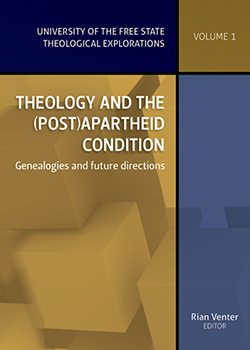Latest News Archive
Please select Category, Year, and then Month to display items
12 October 2020
|
Story Dr Cindé Greyling
|
Photo Supplied
 Exercise and nutrition can work wonders for your mental health – you don’t even have to ‘feel like’ or ‘enjoy’ moving around and eating well for it to work – it does its thing anyway.
Exercise and nutrition can work wonders for your mental health – you don’t even have to ‘feel like’ or ‘enjoy’ moving around and eating well for it to work – it does its thing anyway.
Nowadays, people talk about mental health like it is the common cold – which is good! But do you know what it really means? Being mentally healthy does not only refer to the absence of a mental illness but includes your emotional and social well-being. One would almost want to add physical well-being too, since a healthy body does indeed support a healthy mind. However, since so many people consider themselves ‘mental health experts’, some myths have been sold as truths.
Myth #1 – You are doomed.
Nope. Never. You are never doomed. There is always help. Mental-health therapies range from self-help, talk therapy, medication, to hospitalisation in some cases. Somewhere on this spectrum of treatments, there will be something that works for you. But you must be willing to get the help and do the work. For starters, exercise and nutrition can work wonders – you do not even have to ‘feel like’ or ‘enjoy’ moving around and eating well for it to work – it does its thing anyway.
Myth #2 – It won’t affect you.
It may. Research suggests that one in five people may suffer from a mental illness at some point in their lives. Being well now does not mean that it will stay that way. Biological and environmental factors both impact your mental health. Hopefully not, but at some point, you may experience an event that affects your mental health.
To remain integrated in a community is always beneficial
for anyone suffering from a mental or physical condition.
Myth #3 – Someone struggling with mental health must be left alone.
Hardly! To remain integrated in a community is always beneficial for anyone suffering from a mental or physical condition. You do not need to fix them, but to remain a friend. Continue to invite them, even if they decline. Do not judge, and do not try to understand. Just stay around.
Go and be kind to yourself, and to those around you.
UFS research project aims to stimulate reflection on theological studies
2017-06-20

The first book in the ‘UFS Theological
Exploration’ academic series, called Theology
and the Post(Apartheid) Condition, has just
been released.
Photo: Supplied
The first study book with the title Theology and the Post(Apartheid) Condition, which is part of a new academic series by the Faculty of Theology and Religion at the University of the Free State, is now available. Volume 1, compiled by Professor Rian Venter as editor, is the first book in the ‘UFS Theological Exploration’ academic series, which the faculty plans to release.
Transformation
Professor Venter says the transformation of processes and practices in communicating and creating knowledge has become an urgent task for public universities in a democratic South Africa. Much reflection has already gone into the methods and scope of transformation in higher education.
Although the faculty has done work on the implications of this for theology, there is one area of investigation that has not received much attention. It concerns the role of theological disciplines such as Old and New Testament, Missiology and Systematic Theology and Practical Theology, and specifically the relationship between academic disciplines and societal growth. The book focuses on these challenges and contains the intellectual undertakings of the contributors who are all lecturers, research fellows and post-graduate students linked to the faculty.
The questions
The key questions addressed are: what are the contours of the (post)apartheid condition and what are the implications for responsible discipline practices in theology. Professor Venter says the chapters in the book are logically arranged and moves from wider to more specific concerns. The first three chapters suggest broad perspectives on the challenges for theology in higher education, chart the changes, and make some suggestions for the future.
A dynamic field of study
The book states that theology has already experienced profound and radical changes over the past decade, which is known to us. All the chapters demonstrate these fundamental shifts, which have taken place in all theological sub-disciplines. Professor Venter says the contributions in the book illustrate that theology is a dynamic field of study, and is pursued with enthusiasm and commitment. Not all disciplines in theology are investigated for the book. However, the studies reflect the interests of the theologians in the Faculty of Theology at the UFS. Professor Venter hopes that the volume might stimulate further reflection of a similar nature by other theologians.
New insights
Through the ‘UFS Theological Exploration’ research series, the faculty hopes to stimulate new insights and new developments in academic progress and overall human growth. Series editor Professor Francois Tolmie says it is a fact that strong university research is necessary to achieve academic progress and advance human prospering. He says the faculty's research series will make a valuable contribution to these causes. Professor Tolmie says the ‘UFS Theological Explorations’ contains research of the highest academic standard which has been peer-reviewed to make significant educational contributions to core theological issues in South Africa and overseas.